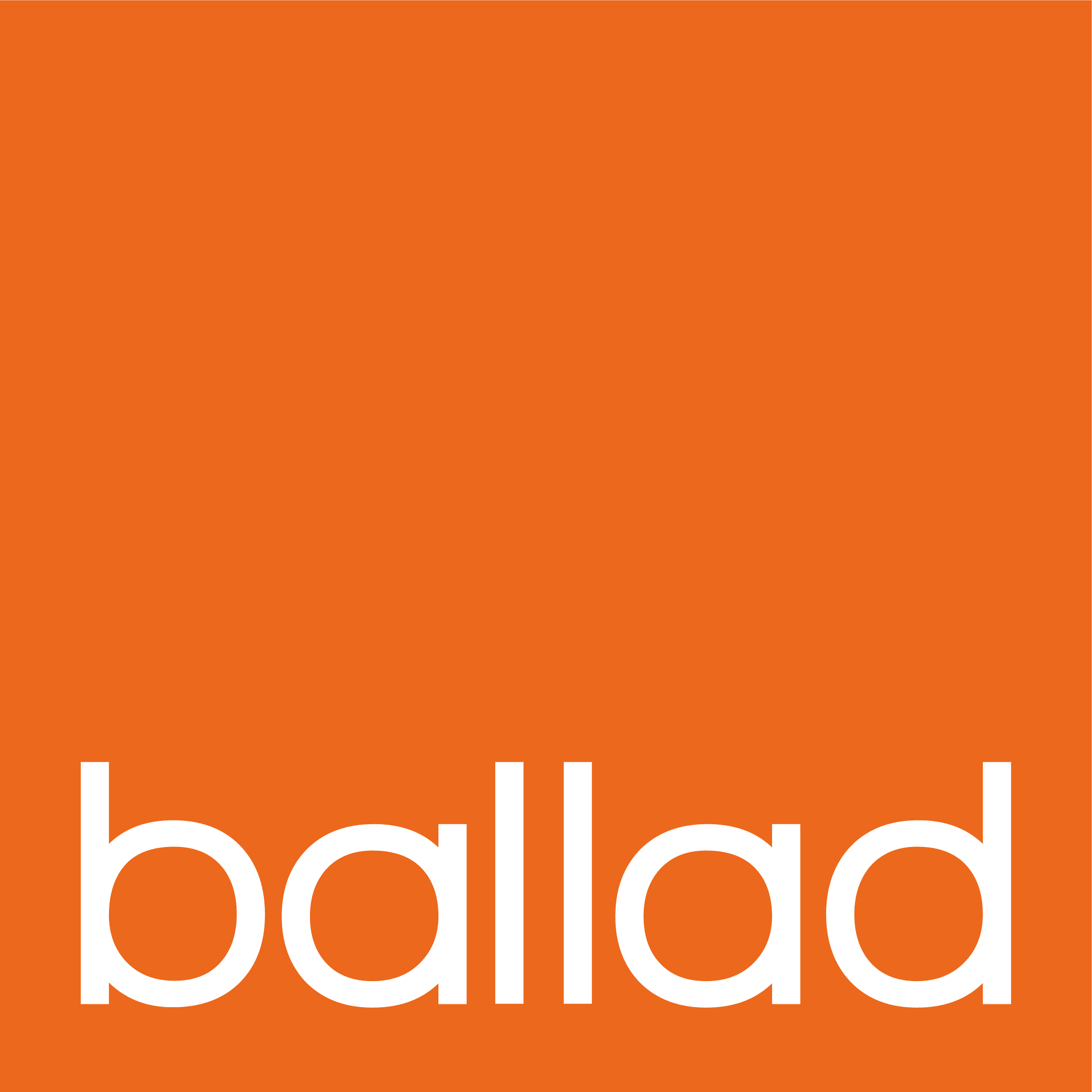Alberta’s Municipalities to Feel the Fiscal Strain

Recently, Alberta’s provincial government released its budget and economic projections for the coming fiscal year and beyond. As was widely anticipated, it was acknowledged for the first time that the pace of deficit reduction would be much slower than previous forecasts, reflecting the marked shift in economic realities posed by the COVID-19 pandemic: economic output in Alberta contracted by a record -7.8% in 2020, placing enormous pressures on households, businesses and public services across the province. The provincial government’s focus on ‘protecting lives and livelihoods’ provides continued funding for essential services while attempting to mitigate the effects of an already-severe downturn. Even with the provincial government pushing out its target timelines for returning provincial finances to balance – originally set for FY 2022-23 – fiscal consolidation is expected to proceed over the coming years: the deficit is forecast to peak at over $20 bn (6.6% of GDP) in FY 2020-21 before falling gradually to reach $8 bn (2.1% of GDP) by FY 2023-24, with this relying on expenditure restraint, the reversal of pandemic-related recovery and stimulus measures, and improving tax receipts as the broader economy picks up (Figure 1). Correspondingly, elevated deficits in the near term will add to the province’s debt levels, with taxpayer supported debt rising from $98 bn in FY 2020-21 to $133 bn in FY 2023-24. While pandemic-related supports and stimulus measures will recede going forward, the province’s ‘ordinary’ expenditure is expected to grow at an average rate of 1.5% annually in the coming three-year period: operating expenditures to meet day-to-day needs comprise over 80% of total government spending and are set to grow by 0.8% annually, while capital spending is set to grow by 5.9% annually, albeit with an overwhelming proportion of this dedicated to the expansion of Calgary and Edmonton LRT systems. Growth in ‘ordinary’ expenditure is relatively modest given that nominal GDP is forecast to rise sharply throughout the same period, with this pointing to expenditure restraint and steps the government is taking to reduce the size of Alberta’s public sector relative to the economy.[1] Overall, Alberta government spending is projected to fall in relative terms from 18% of GDP to 15% of GDP during the period. Thus, while the province’s overarching fiscal targets have been scaled back, the broader thrust of September 2019’s MacKinnon Report and its push towards achieving greater efficiencies in government spending remains firmly in place. Indeed, once this most acute phase of the COVID-19 pandemic has passed it is expected that further plans to achieve a balanced budget will be released. Given this government’s stated aversion to tax increases, additional pressure on the spending side can be anticipated. Within these shifts at the aggregate level lie significant implications for Alberta’s municipalities which face growing demands on infrastructure and locally delivered services. Municipal budget challenges will increase further in the near term as the province seeks additional costs savings, with municipal funding envelopes set to fall sharply (Figure 2).[2] The combined provincial and federal support to municipal infrastructure projects is expected to average $1.9 bn annually, with this including over $0.7 bn in investment earmarked for Edmonton and Calgary LRT service expansions.[3] After separating out LRT investment, support for municipal infrastructure is actually set to decline by over one-half (55%) in the coming period. The decline is largely attributable to the Municipal Sustainability Initiative (MSI) which accounts for over half of municipal capital funding (excluding LRT projects) and provides for building and maintaining local infrastructure projects (roads, bridges, wastewater treatment, etc.). After increasing to $1.2 bn in FY 2021-22, MSI funding is set to fall to just $485 m annually, with the province setting aside $375 m for a separate Economic Recovery Capital Envelope.[4] Overall, these reductions in capital funding for municipalities – particularly for municipalities in rural Alberta – place significant pressure on their capacity to meet infrastructure demands.[5] Municipalities of course have other means of raising finances in order to bridge this gap, including through raising property taxes or charges and levies. Indeed, part of the rationale for reducing the provincial government’s contribution was that municipalities were estimated to have additional headroom for raising taxes rather than relying on grant funding (MacKinnon Report, 2019). However, any such capacity for tax increases has been significantly eroded by the economic challenges that have pushed the province’s unemployment rate above 10%, while over 20% of businesses were still in danger of closing permanently as recently as January (CFIB, 2021). In fact, many municipalities have offered deferrals for households and businesses in paying their property taxes, reduced or eliminated fees, and launched microgrants to support their business community. Furthermore, the provincial government has encouraged municipalities to match its own commitment to maintaining stable tax rates (Budget 2021). Average residential (5.6%) and non-residential (11.9%) tax rates have remained broadly stable in 2020, even as assessment values have likely come under pressure, especially on the non-residential side (Figure 3). As a result, the capacity of municipalities to source these funds from their local tax base is shrinking, with many organizations already looking to municipalities for funding supports rather than new increases to fees or taxes. In view of these mounting pressures on the revenue side, it is likely that municipalities will once again have to look to expenditure efficiencies and service reductions to maintain longer-term viability. In some cases, these challenges are compounded by non-payment of commercial property taxes as almost all economic sectors have come under pressure and companies seek out relief. This has been especially pronounced in Alberta’s oil and gas sector (more on this in our next issue) due to headwinds facing the sector in recent years. Rural Municipalities of Alberta (RMA) estimates that among its members there was some $245 m outstanding in 2020 (up from $173 m in 2019) relating to non-payment of property taxes from oil and gas companies, with around $100 m of this related to companies that continue to operate. This equates to around $3.5 m per member municipality and is continuing to grow,
Women Inspiring Women.
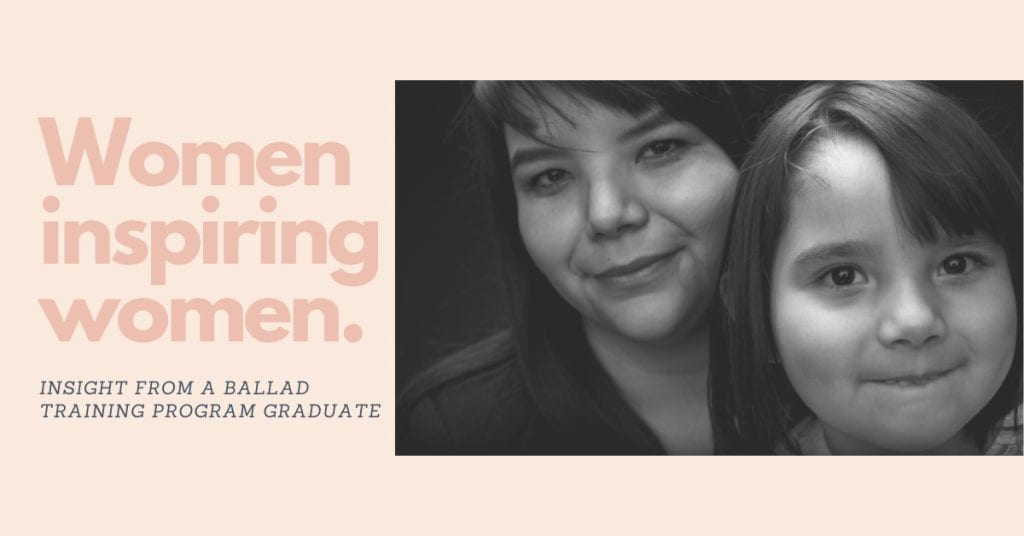
Meet Karis Goodswimmer. Karis is a member of Sturgeon Lake Cree Nation and currently lives in Edmonton with her five-year-old daughter, Isabella. Karis is also a recent graduate of the Ballad Foundations in Hospitality Training Program for Indigenous Youth. Karis credits the many women role models in her life and throughout the program in helping her reach her goals. Karis Goodswimmer’s daughter, Isabella. Before joining the program, Karis worked as a shop hand in a metal shop and had dreams of being a millwright. Like many Albertans, she was devasted when she was laid off as a result of COVID-19 in the spring of 2020. Karis was motivated to apply her skills and interests in a new field of work to support her daughter, but she wasn’t sure where to start. In the summer of 2020, her mom and biggest supporter tagged her in a Facebook post promoting the new Ballad hospitality training program. “I didn’t think that I would need it but I called and inquired anyways. Cathy answered and to my surprise, she wanted to have an interview with me. At the time, I had been at home for two months, doing nothing and feeling depressed… So, I decided to attend the interview. I had nothing better to do. I didn’t know what to expect.” Karis was invited for an interview with Cathy Gagne, an Employment Specialist at Ballad. “I was greeted by the happy and bubbly person, that I know as Cathy. Throughout my interview, I wanted to be professional and friendly but then my interest was sparked. It reminded me of my dreams of becoming a General Manager.” Karis was accepted to the program and was joined by a group of Indigenous youth seeking a career in the hospitality industry. The first day of the program started with a grounding ceremony, and knowledge sharing led by Dr. Patricia Makokis. “The first week was so interesting, meeting Dr. Makokis and her husband, Eugene, it made me so overwhelmed with pride that I was proud to be Indigenous and made me want to be more in touch with my heritage. I went home and cried because I found a piece of me that was missing.” Karis talked about the inspiring women in the program and in her life that encouraged her to pursue further training and to reach her career goals. Most notably, Karis has three women in her life that inspire her and that she looks up to: her mother, Haley Wickenheiser, and Cathy Gagne. Karis Goodswimmer. “My first role model is my mother. She is the strongest most resilient person I have ever met. The second is Haley Wickenheiser. She’s a hockey player, Olympian, and a doctor. She is really everything I want to be; there’s nothing she can’t do. And finally my mentor Cathy at Ballad. She has really changed my life. When I first met her she was this ball of sunshine, and she radiates positivity. She inspired me to be so much more than I thought.” After graduation, Karis decided to apply her new employment and essential skills in a rewarding job with Alberta Health Services. Karis continues to be inspired by the women health practitioners she works with. She’s even considering going back to school to pursue a career in medicine. “COVID-19 made me learn about myself, in a way that I wouldn’t have before. I believe that everyone has a life path, I am now on mine.” COVID-19 has impacted women disproportionally to men. As the sole caregiver for her daughter, Karis is determined to keep making choices so that she can be a role model and inspiration for her daughter. “I feel like being a woman, and an Indigenous woman, in a man’s world is a big challenge. Yes, it’s hard but it won’t stop me from achieving my goals. My life is different now, I feel like I can do anything and all because of this program.” The Foundations in Hospitality Program for Indigenous Youth is funded by the Government of Canada’s Youth and Employment Skills Strategy. Photos by Ray Watkins.
Alberta’s Businesses Brace for a Second Round of Closures
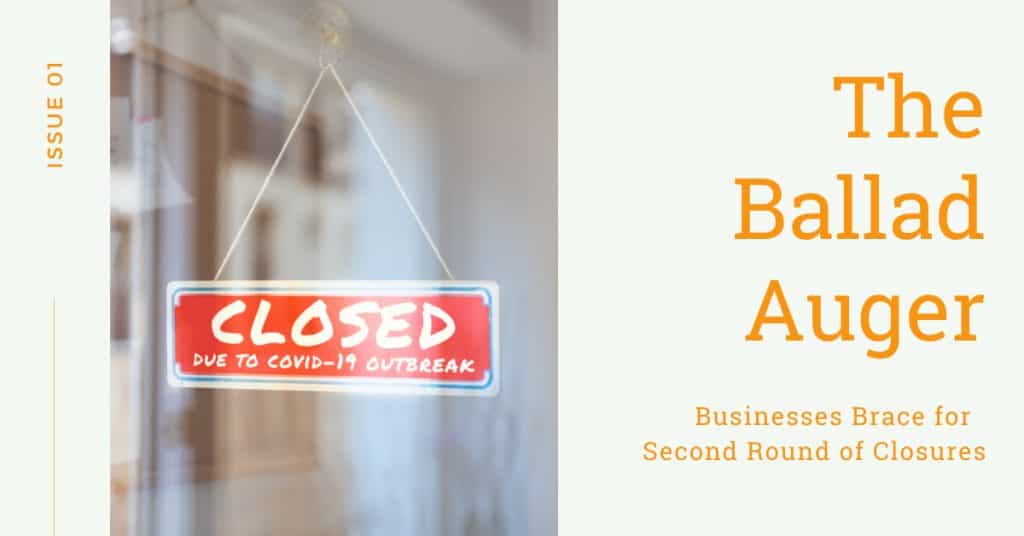
Here we are once again… sort of. Last week we learned of the provincial government’s plans for tighter restrictions, mandated business closures, and banned social gatherings across Alberta as 2020 draws to a close. For many, these measures come as no great surprise given the sustained rise in COVID-19 case numbers and the acute pressures now being placed on hospital services, with this ultimately tilting the balance of policymaking away from the imperatives of keeping the economy open. Of course, that the provincial government proceeded down this path only as a last resort – and even then with some reluctance – points to the significant economic effects it is likely to have. In assessing these, to a certain extent, we can look back to the experience of the first wave of COVID-19 cases earlier this year and the policy responses it provoked. During that period, economic output across the province contracted sharply in line with tightening public health measures over the course of March and April, with the Alberta Activity Index (AAX) contracting by -1.4% q-o-q in 2020-Q1 and -10.2% q-o-q in 2020-Q2. Monthly retail sales collapsed (by 28% to end-April), as did manufacturing sales (-26%) and sales at bars and restaurants (-58%). The consequences of these historical drops in output were seen in the labour market also, with over 360,000 jobs lost in the span of two months and the unemployment rate rising to 15½% (Figure 1). The federal and provincial government rolled out an enormous package of supports to both individuals (CERB) and businesses (CEBA, CEWS, SME Relaunch Grant), with these proving pivotal in ensuring that various sections of Canadian society – from job creator to part-time employee – received some form of rapid relief from near term financial strains. In the subsequent months, we have seen these supports and recovering employment more generally underpin a consumer-led rebound in economic growth. Indeed, the AAX (and the indicators underpinning it) rebounded to rapid 6.2% q-o-q growth in 2020-Q3, underpinning expectations for robust economic recovery in the near term as virus-related risks initially appeared contained. Notwithstanding the positivity of the early recovery phase, for those of us watching the data closely and – more importantly – directly engaging with businesses on the ground across the province, this recovery has shown signs of softness for a while now. Dig into the numbers just a bit and you find that, while the economy has indeed recovered over two-thirds of the jobs lost due to the pandemic, these gains have overwhelmingly been in part-time employment which is now higher than pre-pandemic levels. Full-time employment positions, meanwhile, remain 6.5% lower, equating to almost 125,000 jobs that have yet to be regained. In the absence of a more robust and jobs-rich strengthening of the labour market and household incomes, headwinds to further gains in consumption are likely to emerge. On the business side, meanwhile, we have yet to see any signs that confidence is returning at a rate sufficient to spur a large pick-up in investment, especially in the oil and gas sector. Uncertainty around businesses’ future sales expectations is heightened, with this having knock-on impacts on future hiring intentions; while capital investment projects have been postponed or shelved altogether (Figure 2). All of this, meanwhile, has been compounded by a more challenging private sector financing environment. Ballad’s own engagement with Albertan businesses initially pointed to cautious optimism regarding future sales, albeit coupled with an acknowledgement that policy uncertainties and pandemic-related risks are extremely elevated. It is a reasonable assumption that many of these businesses are now in the process of revising their sales forecasts downwards following this latest announcement. The adverse economic effects of the latest tightening in restrictions will be somewhat offset by countervailing factors. Firstly, the provincial government has augmented its earlier SME Relaunch Grant; affected businesses are now able to claim a non-refundable grant up to a maximum of CAD 20,000 based on a sales decline of 30% (versus 40% previously). The provincial government’s own estimates suggest that some 30,000 businesses will be affected by these latest measures, with this support providing direct cash flow at a time when they will need it most. Secondly, Alberta’s economy, labour market and business community has been through this before. While these restrictions are unambiguously negative for business, many have been able to adjust their business models to respond rapidly to changing occupancy allowances and alternative delivery formats. Furthermore, public policy has learned from its missteps the first time round: entry requirements to some funding programs have been loosened; federal programs such as the Canada Emergency Rent Subsidy (CERS) have undergone important reforms and are now more effective, while others such as the Canada Emergency Wage Subsidy have been extended and afford business owners greater certainty; and organisations such as Community Futures are also flexible in stepping in and further assisting those that need it. Nonetheless, taking all of this together, it appears that the economy is set to slow once again as we approach the holidays and enter a new year, while expectations for a rebound thereafter are highly uncertain. This latest round of restrictions ensures that the recent Mid-year Fiscal Update and Economic Statement is unlikely to age well: nominal deficits and debt levels will likely climb higher from current forecasts; while real GDP growth is set to be revised lower, especially in 2021 due to carryover effects. In line with this, Ballad is currently in the process of updating its own internal provincial forecast which previously anticipated a rebound of around 4% in 2021 – this latest round of restrictions presents material downside risks to that forecast. Ultimately, the decision to tighten restrictions has been forced by non-economic factors, with the corresponding announcement of fiscal transfers providing some relief, albeit modest. These supports can only be considered a short-term band-aid in the context of a health crisis that may dissipate once vaccines are more widely distributed in 2021. Going forward, what is increasingly needed is a longer-term discussion on how
Essential Skills to Success: A Participant’s Experience
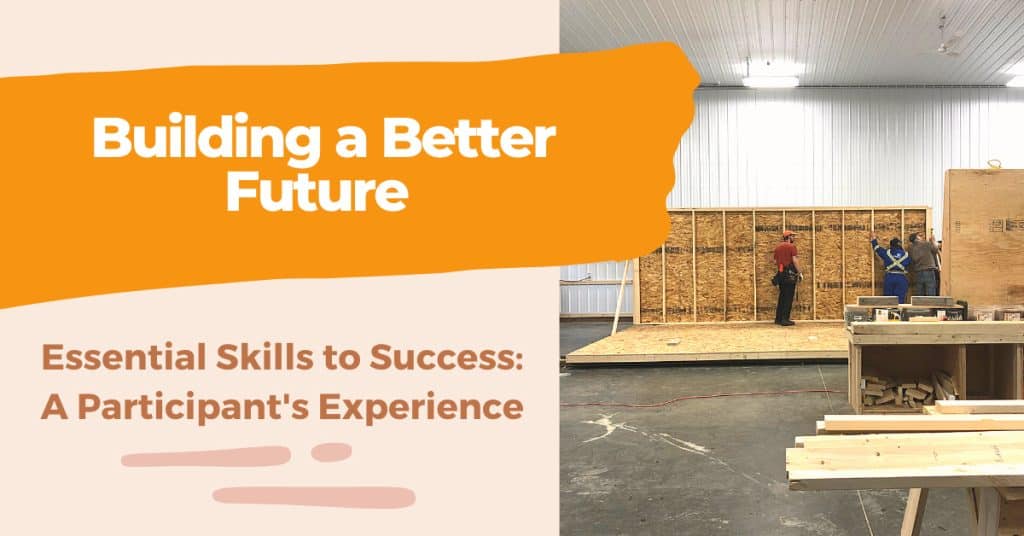
We chatted with recent Essentials Skills to Success Training participant to learn more about her experience in the program. Tell me about yourself. I am a 20-year-old woman, who had very limited education and struggled with addictions and mental health concerns also. How did you hear about Ballad Training? I knew several people that had been in the program who told me that it would be a great opportunity for me to gain skills that would help me achieve my goals. Why did you join the program? Because I was ready to start expanding on my experience and wanted to have a support system that could assist me in achieving the things that I really wanted to do but was unsure of how to get there. “I LEARNED HOW TO TAKE RISKS AND TRUST MY STRENGTHS AND BE CONFIDENT IN MY ABILITY TO LEARN NEW THINGS.” Tell me about your training experience? It was fun and informative, I got to learn a lot of things about my skills and talents that I would not normally get in a traditional workplace. I learned how to become more assertive and self-confident in my abilities. I learned how to take risks and trust my strengths and be confident in my ability to learn new things. What did you gain from the training program? I was able to take my GED and successfully pass it while in the program which was a huge barrier to me. I got to take driver’s training which gave me the skills to pass my Class 5 GDL, I got the opportunity to reach my financial goals that I needed to so that I could also do the GED program while maintaining attendance. I was able to secure employment through connections that I made in the program. I was able to be proactive with my mental health and encouraged to obtain counseling and all other supports. What were some of the challenges? Being pushed to break out of my comfort zone and to work and share in a group setting. Being pushed to realize my potential and not letting fear win. “I LEARNED HOW TO BECOME MORE ASSERTIVE AND SELF-CONFIDENT IN MY ABILITIES.”
A new office and a new program in Grande Prairie!

Ballad has opened a new office in Grande Prairie and launched another new program: The Fundamentals of Supply Chain Management! “It has been a really exciting last few weeks. I’m looking forward to building relationships and getting to know the students in the Grande Prairie area. And we have industry partners in central Alberta that I’m excited to strengthen and connect with the GP students.” Said Sydney Schneider, Training and Operations Manager at Ballad. Ballad has been busy during the last few weeks setting up the training centre, onboarding our new Grande Prairie team members, and launching the program. The new 20-week program is designed to prepare students for career opportunities such as Purchasing Agents and Officers, Retail and Wholesale Buying, Purchasing and Inventory Control Workers, Shippers and Receivers, and Material Handlers. The first cohort was 100% subscribed with 16 students. “The program is meant for students that are seeking a career change. The curriculum builds on their skills from previous jobs and industries and upskills them for a new industry. ” Said Schneider. This is the first time Ballad has delivered this program, and it’s already off to a great start. “I am really enjoying the content and I also really like the Instructor. It is lovely to have people from all different backgrounds and being able to relate the information we are learning into our previous jobs.” Said a program participant. “Instruction has also been great, knowledgeable, and good back and forth.. All around 5/5. It’s unheard of that a first-time course runs so smoothly.” Said another program participant. The classroom portion of the program provides the fundamental supply chain education through a combination of Ballad’s curriculum and the Certification in Logistics and Transportation and Distribution course delivered through the Association of Supply Chain Management (ASCM). In addition, students will complete employment readiness certifications and employment preparation skills workshops to build critical thinking, time management, and customer relations skills. Participants will transition from the classroom to be matched with one of Ballad’s industry partners, completing an eight-week work placement to ensure they are job-market ready. The COVID-19 pandemic has highlighted the importance of supply chain workers. The supply chain sector supports several industries, including manufacturing, wholesale trade, retail, construction, oil and gas, and public works. Upon completion of the program, students will be able to occupy similar roles across these areas, providing them with a high degree of resiliency against future economic shifts. “I’d really like to deliver this program in more regions and continue to support unemployed Albertans across the province. The supply chain industry is going through some major changes, and we want to be apart of that.” Said Schneider. How to Get Involved: Employers: Ballad is currently building relationships with employment partners across central Alberta. If you’re interested in providing a work placement opportunity for students please get in touch. Interested Students: Visit the Fundamentals of Supply Chain page on the Ballad website to register and learn more.
An Empowering Start to the Foundations in Hospitality Training Program for Indigenous Youth!

The Ballad team is excited to announce the launch of the Foundations in Hospitality program for Indigenous youth! This enriching program is designed to prepare students (between the ages of 15 and 30) for a career in hospitality while building their employment readiness skills, industry relationships, and cultural connection. With the recent impacts of COVID-19, the program launch has been well timed. “The hospitality industry has been hit hard by COVID-19 and as it rebounds it’s going to be a competitive market for job seekers. I’m excited that Ballad can support individuals to get back to work, and especially youth. This training program will provide participants with an advantage.” Said Sydney Schneider, Manager of Training and Operations at Ballad Group. This is the first program that Ballad has offered solely for Indigenous youth. As such, the program team has taken an intentional approach to integrating Indigenous cultural protocols, guest speakers, content, and job placements with Indigenous-owned businesses. In addition, the program team is working closely with Indigenous Educator, Dr. Patricia Makokis, to ensure they integrate Indigenous ways of learning throughout the training. “The first day was empowering. It was a real honor to have knowledge keepers Elder Eugene Makokis, Dr. Patricia Makokis and Lloyd Cardinal lead us through a grounding ceremony and talking circle. They set the foundation for the students and for the Ballad program team.” Said Schneider. Students echoed this sentiment and were grateful for the opportunity to learn about traditional teachings from Elders on the opening day. “I got a strong sense of pride as well as belonging right at the start. The first day was definitely the beginning of a brighter and happier life for me individually and I will cherish it for the rest of my life.” Said one student. Ballad will be delivering the program six times over the next three years. The program cohorts are small, with six to seven students enrolling in the 11-week program. This size creates an intimate learning environment while abiding by the Government of Alberta COVID-19 protocols for academic institutions. As part of that protocol, students were provided with masks made by Goodfish Lake First Nation Business Corporation on their first day. The program includes a combination of occupational skills training, employment readiness courses, and employment preparation skills. Throughout the in-class component guest speakers, including Indigenous hospitality business owners and leaders, will share their insight into the industry and provide students with an opportunity to build relationships. “It’s important that we include Indigenous role models and hands-on learning experiences for the students. We’re actively building strong partnerships with Indigenous-owned hotels and businesses such as the River Cree Resort and Casino at Enoch Cree Nation, and Indigenous Tourism Alberta.” Said Schneider. After the program students will be qualified to pursue a variety of front and back-of-house career opportunities such as front desk associate, concierge, hotel maintenance, or banquet server. But for many, the training program offers more than that. Students will walk away with new friends, industry connections, and the skills to achieve their career aspirations in hospitality. “It will change my life when we are finished. I am very honored to be apart of (this) great experience. Truly grateful.” Said one student when describing their most memorable experience of the opening day. How to Get Involved: Employers: Ballad is currently building relationships with Indigenous and non-Indigenous employment partners across central Alberta. If you’re interested in providing a work placement opportunity for the students please get in touch. Interested Youth: Visit the Foundations in Hospitality Training Program page on the Ballad website to register and learn more.
Celebrating Indigenous History Month Virtually
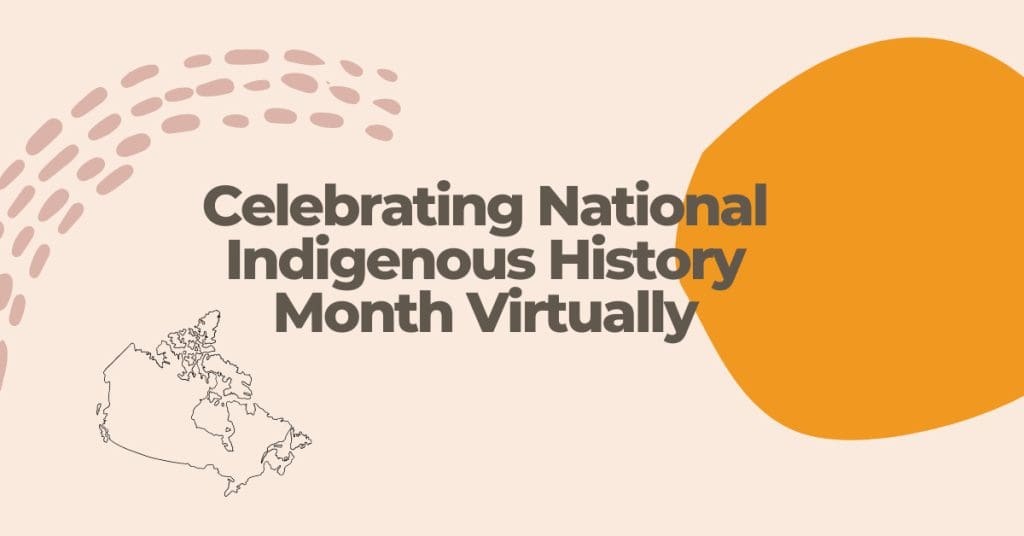
June is National Indigenous History Month. It’s a time for all Canadians to unlearn what many of us have been taught and learn the diverse history and contributions of Indigenous Peoples in Canada. At Ballad our Indigenous Awareness Advisor, Dr. Patricia Makokis, reminds us that education is a lifelong journey and is critical for the work that we do with our Indigenous partners. To do this, we continually strive to learn from and work with Indigenous partners through awareness, dialogue, and reflection, grounded in the spirit and intent of reconciliation. This year, to celebrate Indigenous History Month virtually we recommend the following resources: 1. Watch: This June Dr. Patricia Makokis launched her second film, Treaty Walk: A Journey for Common Ground. Her series of films are used as teaching tools to build understanding, allyship and bridges for better relationships among Indigenous and non-Indigenous Peoples. 2. Read: Spend some time reading 21 Things You May Not Know About the Indian Act by Bob Joseph. The book provides readers with an overview of the restrictions and impacts imposed on First Nations due to the Indian Act. When you’re done that, pick up one of these books by Canadian Indigenous authors. 3. Listen: Have a laugh and listen to some Indigenous stand-up, sketches, and conversations about Indigenous approaches to comedy on CBC’S Unreserved. 4. Enroll: If you’re interested in pursuing guided learning enroll in Indigenous Canada which is a Massive Open Online Course (MOOC) through the University of Alberta. This free 12-week course focuses on Indigenous histories and contemporary issues that affect Indigenous Peoples in Canada. 5. Attend: Join in the online celebrations on June 21st for Indigenous Peoples Day hosted by Aboriginal Awareness Week Calgary. This year’s theme is “KEEPING THE CIRCLE STRONG through Mother Earth’s Future Generations.” 6. Identify: Review a map of where you live and work, and identify the traditional territory of the First Nation, Inuit and/or Métis Peoples in your area. Learn the names of the Indigenous groups, and any affiliated treaties. You can find some of this information on Native Land or the First Nations Profiles Interactive Map. 7. Reflect: Read the Truth and Reconciliation Commission of Canada: Calls to Action. Select one that is aligned with the work that you do, and commit to ways that you can further this call to action. 8. Share: Share what you’ve learned and these resources with your friends, family, and co-workers. Start conversations around the dinner table about Indigenous history, culture, and contributions. Keep learning and sharing long-after the month of June! As Dr. Makokis says: we have two ears and one mouth for a reason. So take the time this month to listen to, and read the many Indigenous voices across Canada. Happy Indigenous History Month to all our First Nations, Métis and Inuit partners, and friends!
Five Ways Ballad is Staying Connected & Engaged
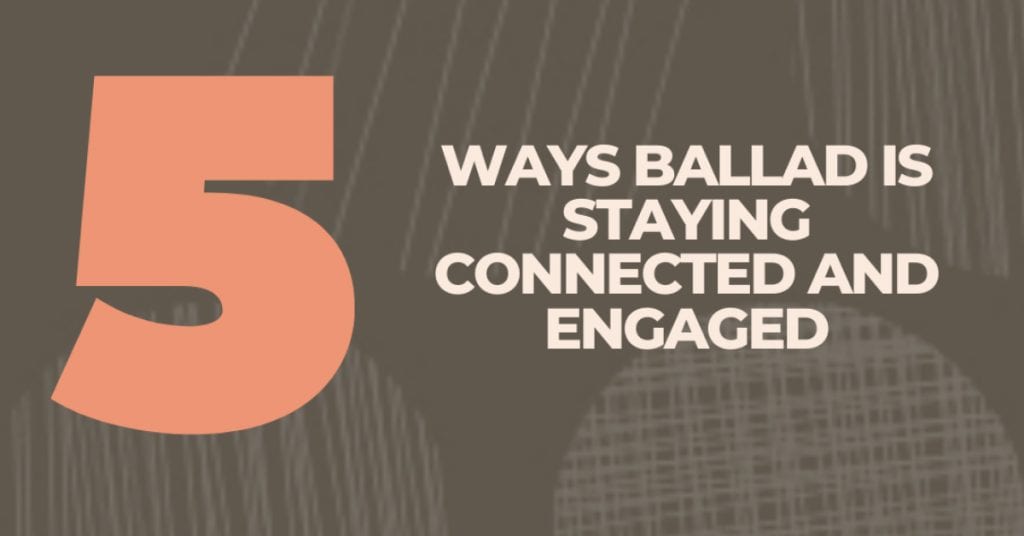
At Ballad we’re used to collaborating with our colleagues in remote locations to deliver a project or prepare a proposal. However, like most businesses our entire team shifted to working remotely due to the global COVID-19 pandemic and the physical distancing guidelines. In doing so, we quickly realized that we were not leveraging our internal tools to their full capacity, and there was an opportunity to better engage remote team members. At first, our Slack conversations picked up, and Zoom video conferencing replaced phone calls. Then our team quickly started new initiatives to help keep our team members connected and engaged such as: Zoom Hang-Outs: Pre-COVID-19, periodically on Fridays the Edmonton corporate office would host happy hour drinks to celebrate successes and start the weekend. Physical distancing quickly put an end to those catch-ups. In their place, we’ve had Zoom hangouts with trivia games, drawing competitions and drinks. One of the perks with gathering online is that team members in every location can now participate. Coffee Chats: Over the last few weeks and months there has been a lot of changes in all aspects of our team members’ lives, with new information constantly impacting the way we work and live. To better understand how our team was coping with these changes, our HR Coordinator initiated a series of coffee chats to check in and engage every employee. It was an opportunity to learn about the experiences of each team member which better informed the management team as we continue to operate in this new reality. Active April: To keep us moving and to help prevent the COVID-‘15’ from setting in, we launched Active April. This was started by our Operations Manager and excel wizard – who made an elaborate point system that kept us accountable whether we were biking, doing stairs, yoga, or dance-dance revolution. The winner (notably our most senior participant) received a $100 gift card and a $100 donation in their name to a charity of their choice. Book Club: An idea that sat on the shelf for several months was finally initiated. The book club was started to promote shared learning, morale, and encourage just a little less screen time. With a lot of interest and suggested books, we developed a quick employee survey to select the first read, landing on The Originals written by Adam Grant. Mental Health Check-ins. Previously at the beginning of meetings we’ve always done regular check-ins that resembled: what are your weekend plans or how is your week going? But now, our small talk has shifted to real conversations and concerns. It’s pretty normal to ask how is everyone’s mental health or how is everyone REALLY doing? And to not get the “good” or “busy” standard answer. Overall, our team members are more connected. We’ve seen inside coworkers homes, heard how their plans and lives have changed, and we’ve rallied together to shift and adapt. Now, as we enter these next phases of reopening Alberta, it’ll be interesting to see which of these initiatives will continue to bring our team together.
We’re Ready, Together.
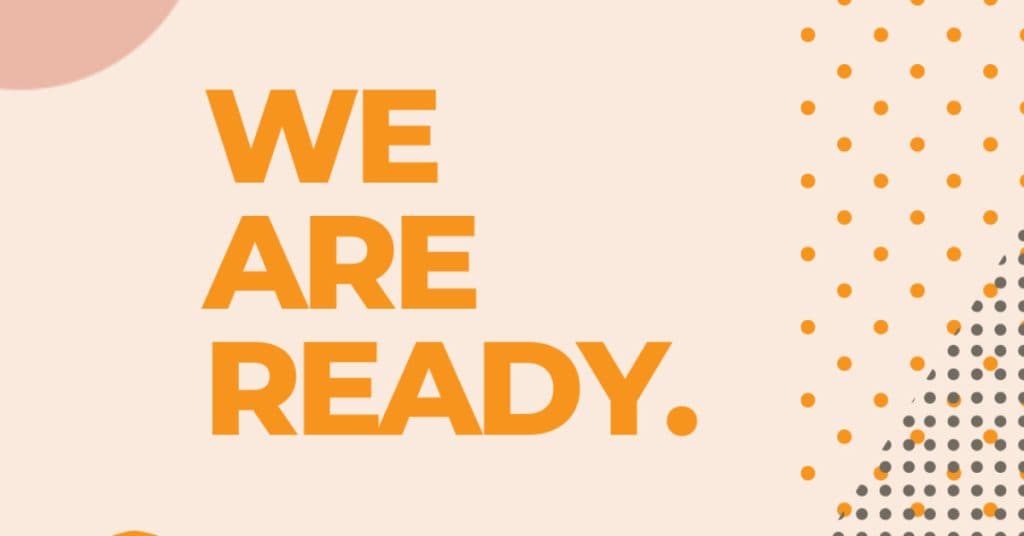
Written by Allison Smith It has been strange launching a new website and blog during this uncertain and unprecedented time; especially knowing that the work we do as a business might look very different in a few months or years’ time. That the needs of our clients or the services we provide could be different altogether. Though, that’s the business we’re in as training partners and consultants – listening, adapting and transforming. A few years ago, we looked different too. A smaller team primarily providing essential skills and training programs, operating from the Midtown Mall in Whitecourt and home offices in Edmonton. Our team collaborated remotely. We travelled to our clients, listened to their unique stories and worked with them to utilize their strengths to solve their challenges. By doing this time and time again, we built trust and relationships. And we’re still doing this today. Now our team is bigger with offices located across the province, and our relationships are a lot stronger. We bring together a group of entrepreneurs, thinkers, doers, innovators and strategists to serve clients across Western Canada. Still grounded in the art of listening, for the past 8 years we’ve worked alongside First Nation communities, Metis Settlements, Provincial and Federal governments, under and unemployed Albertans, and aspiring entrepreneurs. We’ve worked with them through uncertain times. We’ve worked with them through complexity, and adversity. And we’ve learned how to empower our clients to build capacity, achieve their vision and solve their challenges. As we press publish on this website, the world continues to evolve and plan for the future of our economic, social and environmental systems. We’re ready to listen. We’re ready to adapt. And we’re ready to transform together.
